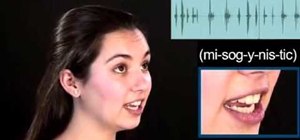

The word gerrymander (originally written Gerry-mander a portmanteau of the name Gerry and the animal salamander) was used for the first time in the Boston Gazette on 26 March 1812 in Boston, Massachusetts, United States. The caricature satirizes the bizarre shape of the district as a dragon-like "monster", and Federalist newspaper editors and others at the time likened it to a salamander. Printed in March 1812, this political cartoon was made in reaction to the newly drawn state senate election district of South Essex created by the Massachusetts legislature to favor the Democratic-Republican Party. 8.23.2 United Kingdom – Boundary review.5 Use of databases and computer technology.4.6.1 Minimum district to convex polygon ratio.

4.6 Objective rules to create districts.4.2 Redistricting by partisan competition.4.1 Redistricting by neutral or cross-party agency.4 Changes to achieve competitive elections.3.2 Increased incumbent advantage and campaign costs.The resulting district is known as a gerrymander ( / ˈ dʒ ɛr i ˌ m æ n d ər, ˈ ɡ ɛr i-/). The term has negative connotations and gerrymandering is almost always considered a corruption of the democratic process. The term gerrymandering is named after American politician Elbridge Gerry, Vice President of the United States at the time of his death, who, as Governor of Massachusetts in 1812, signed a bill that created a partisan district in the Boston area that was compared to the shape of a mythological salamander. Wayne Dawkins describes it as politicians picking their voters instead of voters picking their politicians. Gerrymandering can also be used to protect incumbents. The manipulation may consist of "cracking" (diluting the voting power of the opposing party's supporters across many districts) or "packing" (concentrating the opposing party's voting power in one district to reduce their voting power in other districts). In representative democracies, gerrymandering ( / ˈ dʒ ɛ r i m æ n d ər ɪ ŋ/, originally / ˈ ɡ ɛr i m æ n d ər ɪ ŋ/) is the political manipulation of electoral district boundaries with the intent of creating undue advantage for a party, group, or socio-economic class within the constituency.


 0 kommentar(er)
0 kommentar(er)
